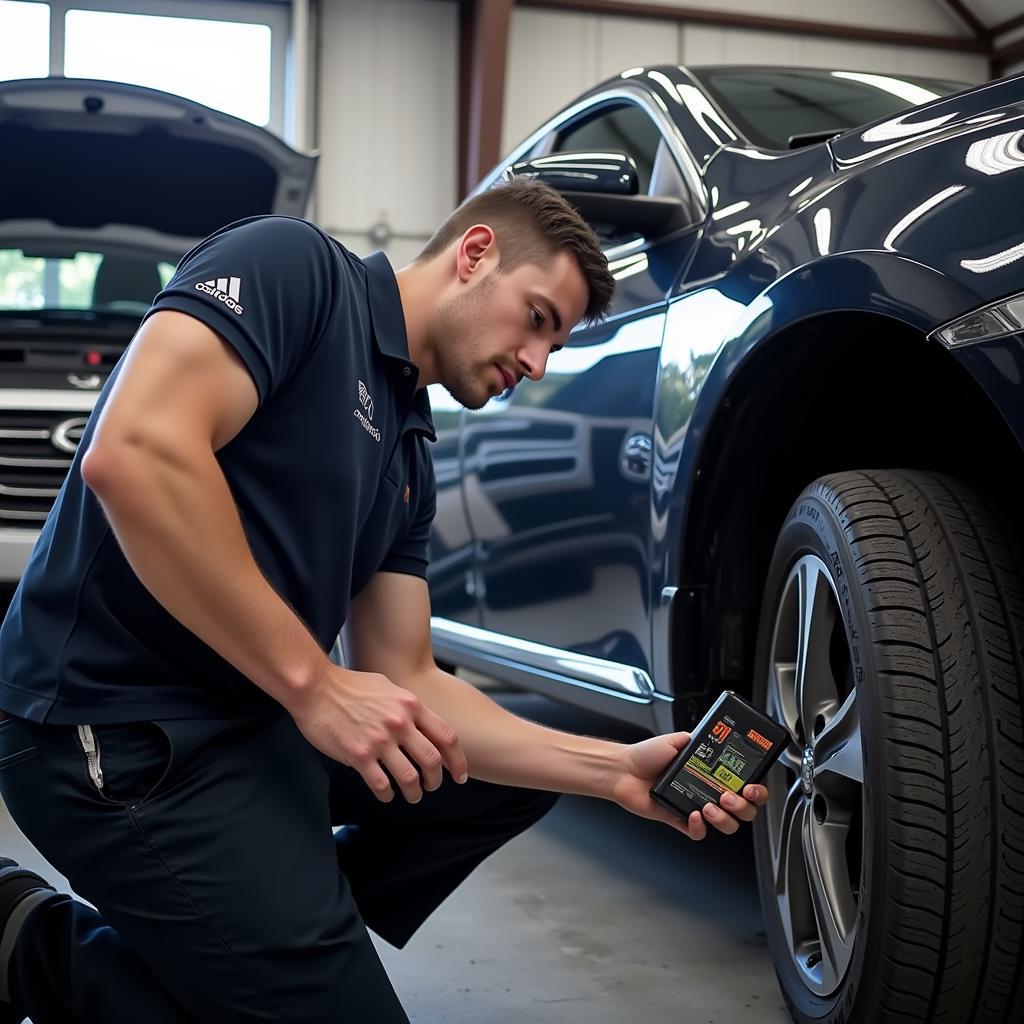Car Service Days or Mileage: The Ultimate Guide
Car Service Days Or Mileage – it’s the age-old question that plagues every car owner. When do you take your car in for service? Is it based on the calendar or the odometer? This guide will dissect everything you need to know about car service intervals, helping you keep your vehicle running smoothly and avoid costly repairs down the road.
Knowing when your car needs a service can be confusing. Do you follow the manufacturer’s recommendations based on mileage, or should you factor in time? The truth is, it’s often a combination of both. This article will delve into the nuances of car service schedules, exploring the factors that influence them and providing you with the knowledge to make informed decisions about your vehicle’s maintenance.
Understanding Car Service Intervals
Modern vehicles often have sophisticated onboard computers that monitor various systems and alert you when service is due. However, understanding the fundamental principles behind car service intervals is crucial. Traditionally, service intervals were primarily based on mileage. For example, an oil change might be recommended every 3,000 miles. However, time also plays a significant role. Even if you don’t drive frequently, certain fluids and components degrade over time.
Why Mileage Matters
Mileage is a direct indicator of wear and tear on your engine and other mechanical components. The more you drive, the more friction and stress these parts experience. This leads to the breakdown of lubricants and the gradual deterioration of components like belts, hoses, and filters.
The Impact of Time
Time can be just as detrimental as mileage, especially for fluids. Engine oil, brake fluid, and coolant can all degrade over time, losing their effectiveness and potentially causing damage. Rubber components like hoses and belts can also become brittle and crack due to age and exposure to the elements.
 Car Service Time and Calendar
Car Service Time and Calendar
Factors Influencing Service Intervals
Several factors can influence the recommended service intervals for your car. Driving conditions, climate, and driving habits all play a role. If you frequently drive in stop-and-go traffic, tow heavy loads, or live in extreme temperatures, your car will likely require more frequent servicing. For instance, if you need a cheap car recovery service frequently, it might be a sign that your regular maintenance isn’t sufficient.
Decoding Your Owner’s Manual
The most reliable source of information regarding your car’s service intervals is the owner’s manual. It provides a detailed schedule of recommended maintenance based on both mileage and time. This schedule typically includes services like oil changes, filter replacements, fluid top-offs, and inspections of various systems. While you can search for car repair online service, your owner’s manual is the best starting point.
What Happens if You Delay Car Service?
Delaying car service can have serious consequences, ranging from reduced fuel efficiency and performance to costly repairs and even breakdowns. Neglecting regular maintenance can void your warranty and significantly shorten the lifespan of your vehicle.
“Regular maintenance is like preventative medicine for your car,” says John Smith, Senior Automotive Technician at ABC Auto Repair. “It’s far less expensive to address minor issues before they become major problems.”
 Delayed Car Service Engine Trouble
Delayed Car Service Engine Trouble
Finding the Right Car Service Provider
Choosing a reputable and qualified car service provider is essential for ensuring your vehicle receives the proper care. Look for certifications, experience, and positive customer reviews. You can also consider specialized services, such as ac service for cars near me or car rental services in asaba, depending on your location and specific needs. Understanding the car recovery service cost can also be beneficial in case of emergencies.
Conclusion
Understanding car service days or mileage is crucial for maintaining your vehicle’s health and longevity. By following the manufacturer’s recommendations and considering your individual driving conditions, you can ensure your car receives the necessary service at the right time. Regular maintenance is an investment that pays off in the long run, saving you money and keeping you safe on the road.
FAQ
- How often should I change my oil?
- What are the signs of a failing alternator?
- How can I tell if my brakes need replacing?
- What is included in a typical tune-up?
- How often should I rotate my tires?
- What are the benefits of using synthetic oil?
- How can I improve my fuel efficiency?
Contact Us:
Need assistance? Contact us via WhatsApp: +1(641)206-8880, Email: [email protected] or visit us at 456 Oak Avenue, Miami, FL 33101, USA. Our customer service team is available 24/7.

